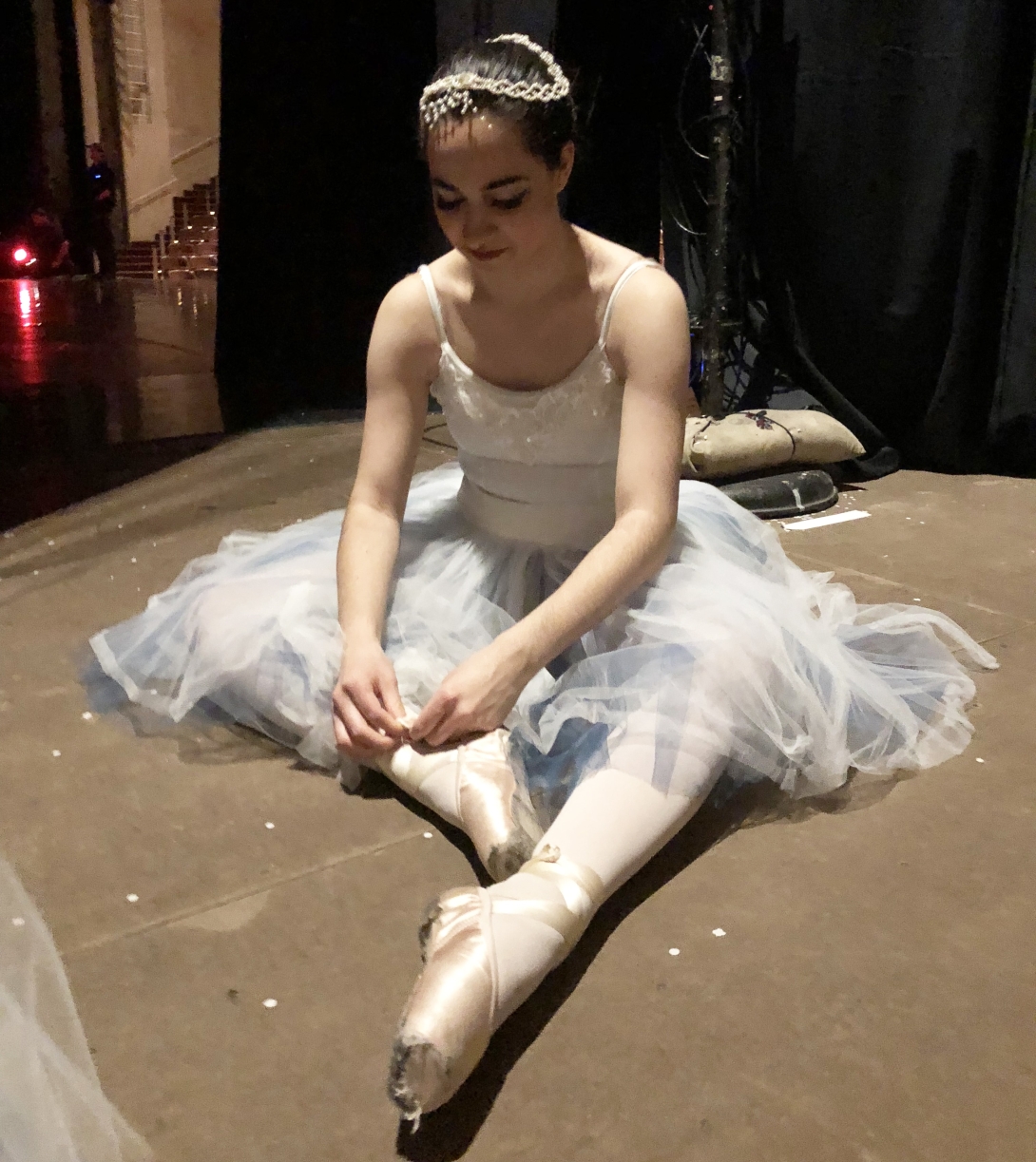A range of treatments, including inpatient stays, helped a young woman regain control of her life. By sharing her experience, she hopes to reach others in need.
7:00 AM
Author |

When you hear the term "psych ward," what first comes to mind?
Even if you're pretty open-minded, you probably don't picture me. I'm a composed young woman with perky, brown curls for days. I'm soft-spoken and you wouldn't pick me out from a crowd.
LISTEN UP: Add the new Michigan Medicine News Break to your Alexa-enabled device, or subscribe to our daily audio updates on iTunes, Google Play and Stitcher.
I earned a degree in ecology and evolutionary biology at the University of Michigan, where I was heavily involved in student organizations and a research lab. I even danced in "The Nutcracker" with Ann Arbor Ballet Theater.
Yet, I've been admitted to U-M's adult psychiatric unit twice and have been admitted to other behavioral health units two more times. And I have used the university's Psychiatric Emergency Services program more times than I can count.
My stays were all for depression and suicidal ideation, something I have struggled with since high school but which got much worse in college. I have a history of obsessive-compulsive disorder that goes back to kindergarten with obsessions such as "dangerous" colors and numbers, a fear of causing fires or other harm, and compulsions involving repeating lists in my head. I also have some difficulty regulating emotions.
I've learned to manage both of these with exposure and response prevention therapy and dialectical behavioral therapy, respectively.
Lifesaving treatment and growth
Though most of my mental health treatment has been in outpatient settings, these inpatient stays were essential. Hospitalizations didn't cure me, but they kept me safe while my treatment plan was assessed and adjusted as needed.
The stays provided essential support in the form of daily therapy groups and compassion from nurses, doctors and fellow patients. They gave me a space to regroup and reflect about my mental health and make necessary choices about how I was going to move forward.
MORE FROM MICHIGAN: Sign up for our weekly newsletter
They extended my life when I wasn't able to do so myself.
Fortunately, due to treatment, I'm doing much better now. Over the past few months, I've felt the best I have in years. I see a future for myself — a future I'm excited to explore. I hardly recognize my chaotic, crisis-filled past self.
I'm hoping I've experienced my last mental health hospitalization, but, of course, I will go back again if I ever need to.

Fighting psych ward stereotypes
Something you learn when you've stayed in a behavioral health unit is that no one there fits that image that might first come to mind, that unfortunate image you see in horror movies.
We're not "crazies." We're average members of society you pass on the street every day — your students, your neighbors, your family and friends. Think you've never met someone who's stayed in a behavioral health ward? I bet you have.
And if not: Hi, I'm Morgan. Nice to meet you.
People sometimes ask, "Why are you so open about your stays on the 'psych ward?' Shouldn't you keep that a secret?" The simple answer, at least for me, is always "No."
SEE ALSO: 6 Tools to Help Prevent Depression in College Freshmen
I feel absolutely no shame about having needed and received mental health treatment. The brain is an organ like any other, and positive attitudes about mental health continue to change rapidly.
One of my biggest hopes in writing openly about my experience is that I can educate at least one person about what a behavioral health patient might look like.
More than that, perhaps I can make someone feel more comfortable about seeking mental health treatment in any form.
Read more about Morgan's experience on her blog, My OCD Voice.

Explore a variety of health care news & stories by visiting the Health Lab home page for more articles.

Department of Communication at Michigan Medicine
Want top health & research news weekly? Sign up for Health Lab’s newsletters today!





